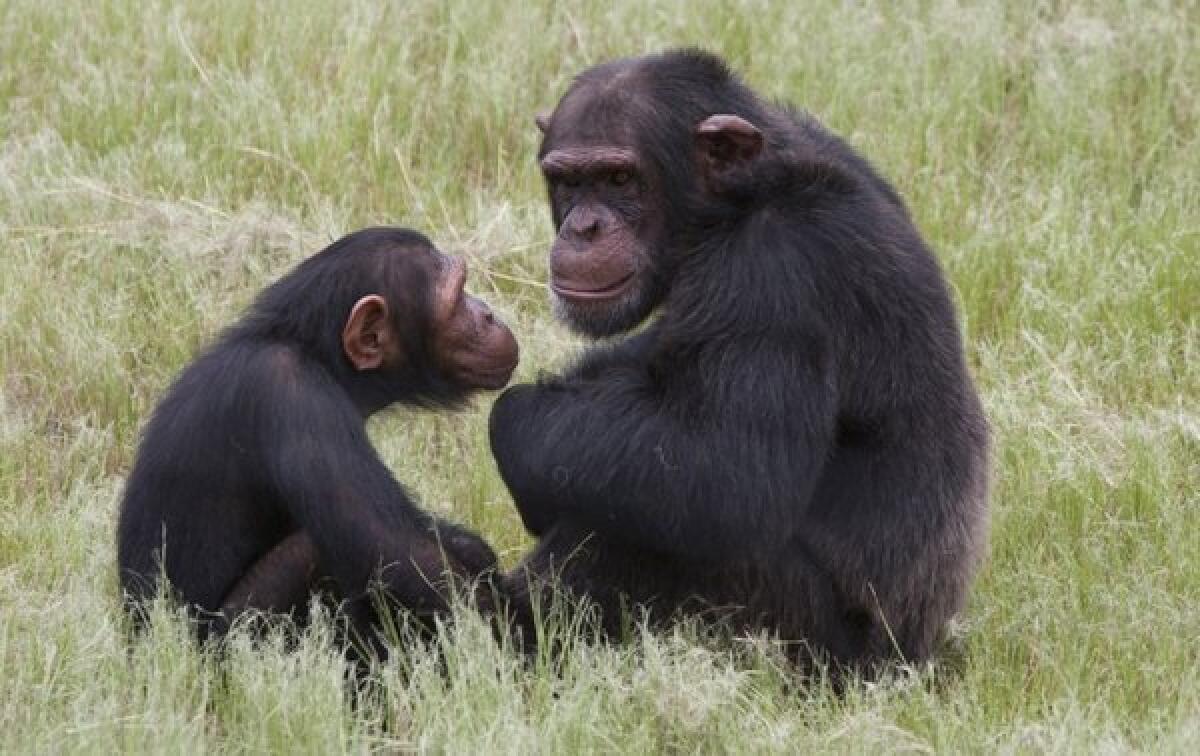Animals that self-medicate: No booze but some cigarettes

- Share via
Anyone with pets knows animals are just like us. They enjoy sleeping on our beds, detest going out in the rain and have a hard time losing weight.
Now comes a scientific report that shows animals in the wild often do something we think of as distinctly human: They self-medicate. However unlike the destructive form that self-medication takes in the human world (too much drinking, drugs, smoking), for an array of animals it takes on the constructive form of ingesting or using plants and chemical substances to treat themselves therapeutically as well as prophylactically.
And it doesn’t take an animal with a higher cognitive ability, such as chimpanzees (which eat herbs to treat their maladies.) According to an article published online Thursday in the journal Science, “The growing list of animal pharmacists includes moths, ants, and fruit flies.”
The authors of “Self-Medication in Animals” looked at creatures that specifically sought out sources of natural medicine that were not plants or substances they would eat for nutrition. They appeared to be either treating symptoms of parasitic infections or trying to prevent themselves and their offspring from getting infections.
For example, the authors note, “a recent study has suggested that house sparrows and finches add high-nicotine cigarette butts to their nests to reduce mite infestations.” (If there’s a better example of turning trash into treasure, I don’t know what it is.) Honeybees, meanwhile, put antimicrobial resin in their nests -- kind of like people slathering Purell on their hands.
All this has implications for agriculture and the human food supply. “Disease problems in agricultural organisms can worsen when humans interfere with the ability of animals to medicate,” the scientists caution.
But perhaps most important -- and I echo the authors here -- is what we learn about potential drug sources for humans from studying animals medicating themselves with plants. Just as animals end up benefiting from medical technology developed for humans, why couldn’t humans find new relief for illness from things animals have intuitively discovered in nature? That’s a better and braver scenario than man and animal modeling each other overeating and dozing on the sofa.
ALSO:
Stumbling into another Korean war
Dodger great Carl Erskine, pitching equality
More to Read
A cure for the common opinion
Get thought-provoking perspectives with our weekly newsletter.
You may occasionally receive promotional content from the Los Angeles Times.





